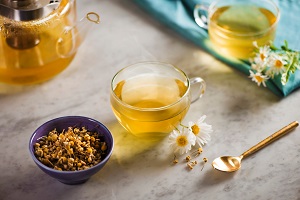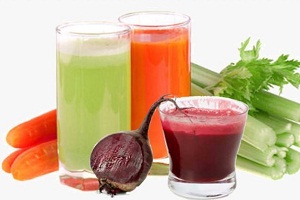By Setareh Kiumarsi
Dessert—a constant guest at every gathering!
In the “When and How to Enjoy It” series, we’re talking about common mistakes in how we eat. We’re diving into which food combinations don’t work, when certain foods should or shouldn’t be eaten, and what their digestive companions are. And we’ll start with dessert!
Picture this: you’ve gone to a dinner party and had a rich, heavy, greasy meal. An hour passes, and the murmurs begin…
“I wish we had something sweet—maybe a dessert or a pastry—to help wash down all that food!”
A common mistake
Did you know most desserts and sweets (which usually contain sugar, white flour, and dairy) are extremely mucus-forming and sticky? These kinds of foods fill your digestive system with undigested phlegm.
When you eat dessert after a meal, it’s like adding a sticky blob of mucus to an already phlegmy ocean inside your stomach!
Not only does dessert not help digestion, it actually slows it down and makes your gut heavier. You’re left with more undigested phlegm, which gradually turns into layers of fat. And then you start seeing all sorts of kapha-related issues: weight gain, hypothyroidism, diabetes, inflammation, and more.
And then we wonder: “But I don’t eat much! Why am I always gaining weight or feeling off?”
So when should we eat dessert, and how?
Here’s something interesting: in order for your body to feel fully satisfied, your digestive system needs to experience all six tastes in your meal; sweet, sour, salty, pungent, bitter, and astringent. That’s why many of us don’t feel “done” until we’ve had something sweet.
But did you know that sweet is the quickest of all the tastes to digest? That’s why it’s best eaten first, not last.
Most sweet foods are cooling and moist. They increase mucus in the digestive tract. So when you start your meal with a small sweet bite (like a date or a piece of natural dessert), you send a blob of mucus down to the digestive system. This encourages saliva production, rejuvenates your stomach lining, and preps the whole digestive tract to better receive and process the main meal. You also feel full sooner and are less likely to overeat.
So always eat sweets before a meal, not after.
Instead of sugar-laden, refined flour desserts (which act like poison in the gut), choose natural sweeteners like dates or dried figs, or homemade desserts made with whole grain flours, natural syrups, and digestive spices like saffron, cardamom, cinnamon, nutmeg, and so on.
You can find delicious dessert recipes like these in the Iranian-Ayurvedic Cooking section of the Ananda website.
Please be sure to credit the author, Setareh Kiumarsi, when sharing or republishing this article, which was written with love and the hope of well-being for all.







